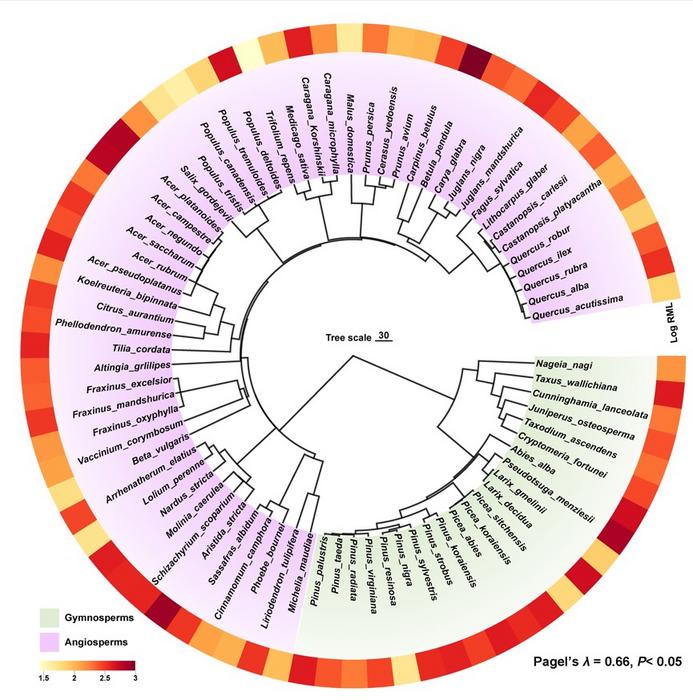Fine roots (≤2 mm in diameter), the main conduit for resource uptake in the plant-soil continuum, are one of the most metabolically active organs of trees. Due to the difficulty of directly observing root dynamics, quantifying fine root lifespan can be challenging. Many factors may concurrently regulate fine root lifespan, but the relative importance of these controlling factors is not fully understood.

Credit: Xingzhao H, et al
Fine roots (≤2 mm in diameter), the main conduit for resource uptake in the plant-soil continuum, are one of the most metabolically active organs of trees. Due to the difficulty of directly observing root dynamics, quantifying fine root lifespan can be challenging. Many factors may concurrently regulate fine root lifespan, but the relative importance of these controlling factors is not fully understood.
In a study published in the journal Forest Ecosystems, a team of researchers from China and Togo analyzed a global dataset they compiled on fine root lifespan and found that global patterns of forest fine root lifespan are shaped by phylogeny, root traits and environmental factors.
“Understanding the drivers of variations in fine root lifespan is key to informing nutrient cycling and productivity in terrestrial ecosystems,” explains the study’s lead author associate professor Xingzhao Huang from the Provincial Key Laboratory of Forest Resources and Silviculture at Anhui Agricultural University. “Fine root lifespan showed a clear phylogenetic signal, with gymnosperms having a longer fine root lifespan than angiosperms.”
Notably, fine root lifespan was longer for evergreens than deciduous trees, while ectomycorrhizal plants had an extended fine root lifespan compared with arbuscular mycorrhizal plants. Among different climatic zones, fine root lifespan was the longest in the boreal zone, but did not vary between temperate and tropical zones. Furthermore, fine root lifespan increased with soil depth and root order.
“Gymnosperms had a longer fine root lifespan than angiosperms, suggesting that evolutionary history is a key factor in constraining the global distribution of fine root lifespan,” adds Huang.
This study compiled a large database and investigated the effects of numerous biotic and abiotic factors on fine root lifespan for global forest ecosystems. The findings highlight the dominant role of plant evolutionary history in regulating fine root lifespan, which has rarely been explored in previous studies.
###
Contact the author: Zijian Guo, School of Ecology and Nature Conservation, Beijing Forestry University, No. 35 Tsinghua East Road, Haidian District, Beijing, China, mailto:guozijian@bjfu.edu.cn
The publisher KeAi was established by Elsevier and China Science Publishing & Media Ltd to unfold quality research globally. In 2013, our focus shifted to open access publishing. We now proudly publish more than 100 world-class, open access, English language journals, spanning all scientific disciplines. Many of these are titles we publish in partnership with prestigious societies and academic institutions, such as the National Natural Science Foundation of China (NSFC).
Journal
Forest Ecosystems
Method of Research
Meta-analysis
Subject of Research
Not applicable
Article Title
Evolution history dominantly regulates fine root lifespan in tree species across the world
COI Statement
The authors declare that they have no known competing financial interests or personal relationships that could have appeared to influence the work reported in this paper.



